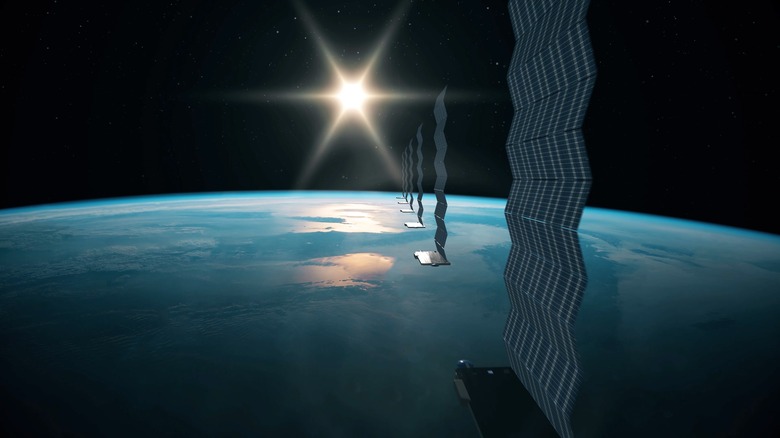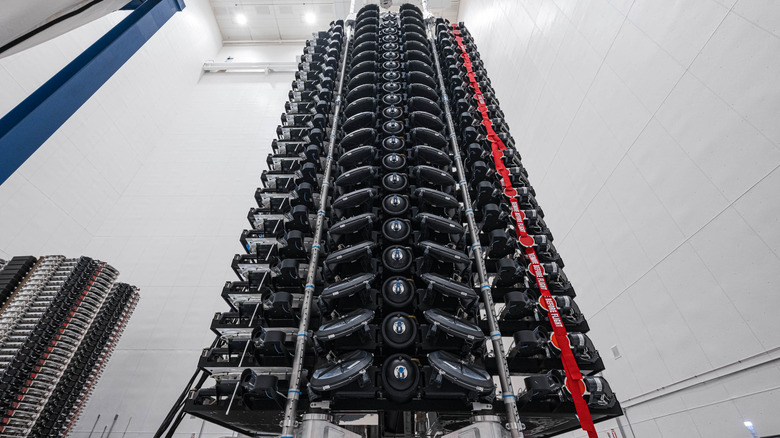SpaceX Is Scrapping 100 Starlink Satellites: Here's Why
SpaceX is planning to dump 100 of its Starlink satellites out of orbit in response to what it calls a "common issue" that could "increase the probability of failure in the future." The affected satellites should make it back to Earth — and hopefully into a large body of water — within six months of the announcement. At this time, the satellites are still maneuverable, with SpaceX claiming both maneuverability and collision avoidance capabilities will be maintained as the soon-to-be pieces of debris come back to the surface.
Even if SpaceX were to do nothing, simply shutting off the satellites would be enough to remove them from orbit within five years. While this is good in the sense that it isn't adding to the vast array of junk orbiting our planet, it's less desirable than a "controlled de-orbit." If you let a satellite come down on its own, there's a greater (but still slim) chance of it landing on someone's grandma's house instead of splashing down in the Pacific Spacecraft Cemetary.
SpaceX has revealed that 17 of its satellites are currently "non-maneuverable" and will be brought back to Earth by atmospheric drag. Despite the lack of control, the company claims the rogue satellites are "well-tracked to help mitigate collision risk with other active satellites" and that 95% of the satellites brought down via controlled descent make it back as intended. The satellites are what makes Starlink, SpaceX's internet service, possible. SpaceX claims that the losses won't impact the service, as it is capable of building 55 satellites per week and launching up to 200 a month.
This isn't the first time something hasn't gone to plan for SpaceX
While SpaceX has had plenty of successful launches, things don't go to plan every time. The de-orbiting will push the total number of satellites SpaceX has brought back to Earth over the 500 mark — 406 have been removed from orbit so far. Elon Musk's spacefaring company claims to have over 6,000 satellites in orbit at the time of writing, which means around 8% of the company's satellites have been brought back down for some reason or other.
Then there are the ones that don't even make it up there. SpaceX has had its share of failures, explosions, and "rapid unscheduled disassemblies" over the years. Not all of them involved Starlink satellites; the company has other interests in space including testing its Starship spacecraft and delivering both people and objects to the ISS. Musk himself has acknowledged the times things haven't gone as planned and even once cobbled together a "SpaceX Fail Compilation" packed with botched launches.
While you may be worried about a satellite or rocket falling from space and landing on you, it really isn't that much of a danger. While the risk is obviously never zero, there are an awful lot of things flying around many miles above our heads, but the chances of something positive like a Powerball win are far greater than death by satellite.

